Week 1 offered an intimate understanding of German economic and entrepreneurial advancements
The first week of the EPGP international immersion at ESCP Berlin unfolded as a rich on-the-ground education in the economic, political and entrepreneurial advancements of Germany. With the help of a cadre of native coordinators from Berlin and a diverse group of travel companions that included Prof. Ludvig Levasseur, Entrepreneurship area, IIMB, the visit helped develop an intimate understanding of Germany’s advanced and emerging markets and drew meaningful connections to India and the wider global context.
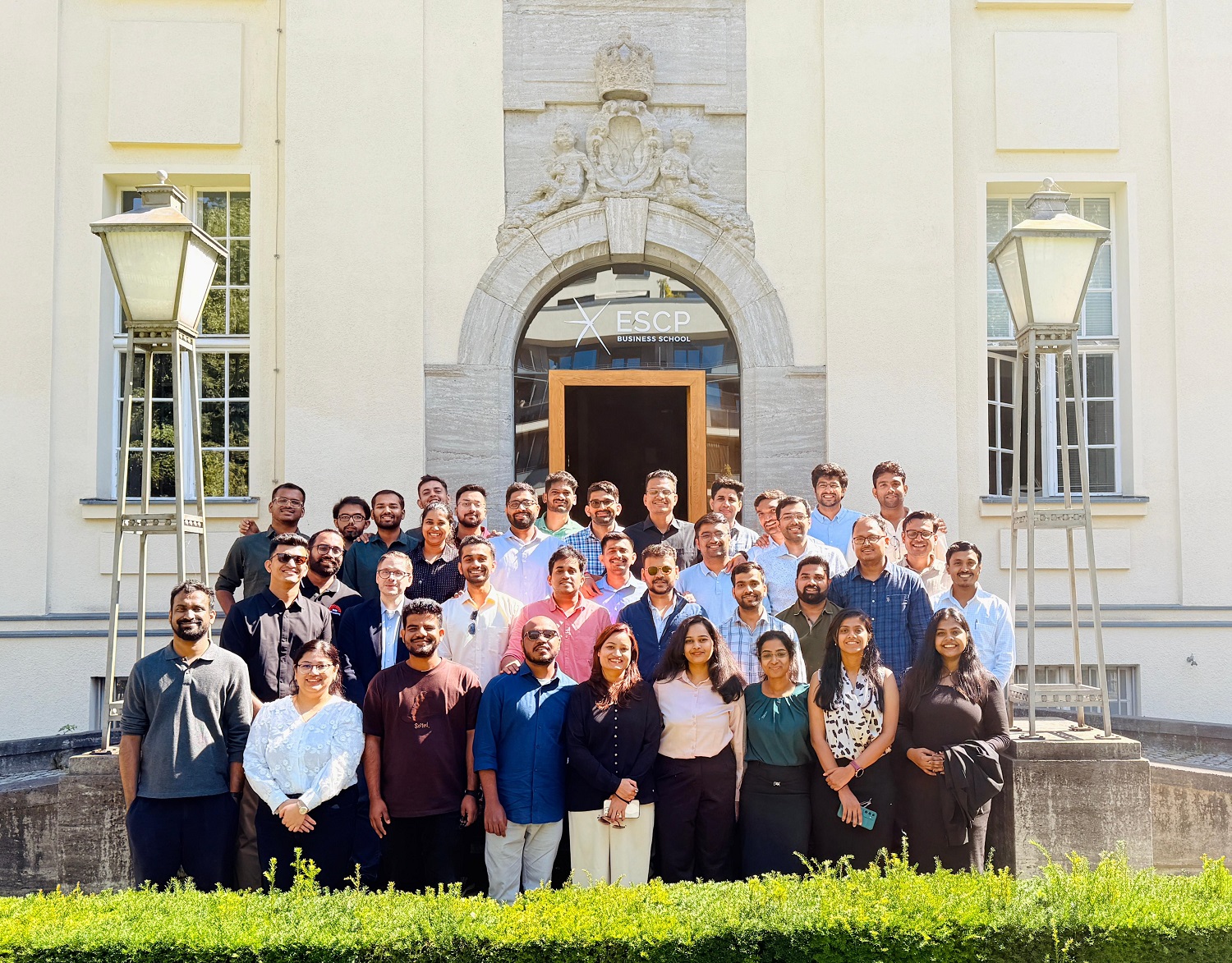 A cohort of EPGP students on Day 1 of their international immersion at ESCP Business School, Berlin.
A cohort of EPGP students on Day 1 of their international immersion at ESCP Business School, Berlin.
Day 1
Day 1 began with Prof. Dr. Georg Stadtmann, professor at Europa-Universität Viadrina in Frankfurt (Oder), Germany, and his session on ‘Business in Germany: From Macro to Micro’. Through an exploration of GDP, trade, and the subtle interplay between macroeconomic forces and microeconomic incentives, students confronted both the promise and complexity of Germany’s position in the global economy. The discussion of Porter’s Five Forces in relation to currency movements and the debate on the “tyranny of metrics” set the tone for a week of critical engagement. The subsequent visit to the Embassy of India and the German Reichstag, which offered a deeper understanding of Germany’s political history and contemporary democracy, reinforced this macroeconomic perspective with reflections on diplomacy, situating Berlin as a hub of ideas, commerce and governance.
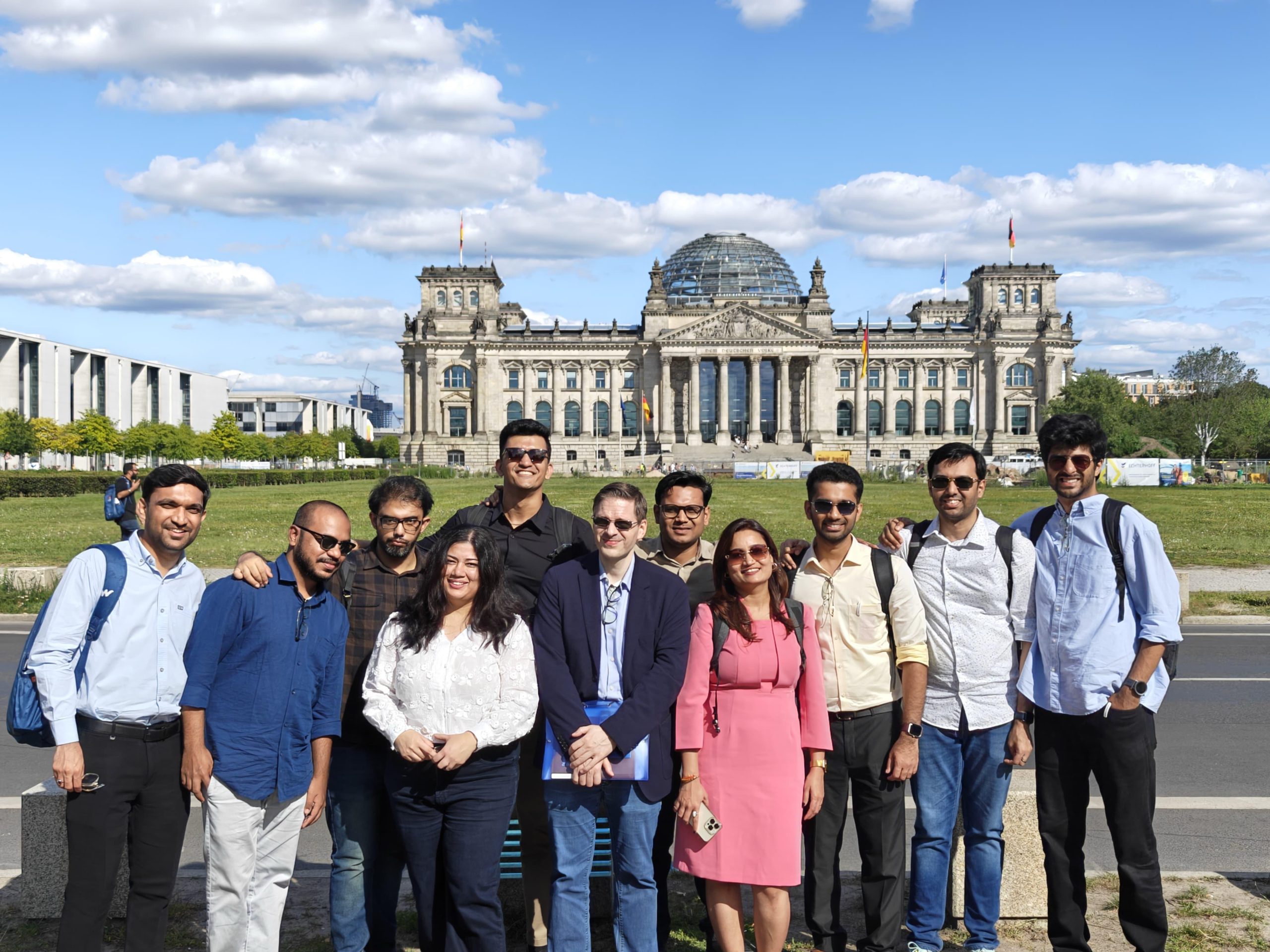 EPGP students visit the Reichstag along with Prof. Ludvig Levasseur, Entrepreneurship area, IIMB.
EPGP students visit the Reichstag along with Prof. Ludvig Levasseur, Entrepreneurship area, IIMB.
Day 2
Day two shifted focus from the national to the entrepreneurial, as Professor Stefan Schmid, Chair of International Management and Strategic Management at ESCP Business School, introduced students to the Mittelstand – Germany’s distinctive ecosystem of family-owned, small- and medium-sized enterprises (SMEs). The session provided insight into why the Mittelstand is a key driver of the economy, with proportionally more medium-sized enterprises than other countries such as France or the UK. These firms, often modest in size but global in impact, provided lessons in resilience, operational excellence, and long-term vision. Discussions were also held on the underlying business system, which includes Germany’s unique dual apprenticeship system and the strong role of banks and credit unions.
The visit to Hubraum, Deutsche Telekom’s incubator on Day 2, brought to the fore how established corporations actively nurture innovation by connecting agile startups with a network of experts and business opportunities. Together, the classroom and industry experiences illuminated Germany’s unique blend of tradition and modernity in enterprise development.
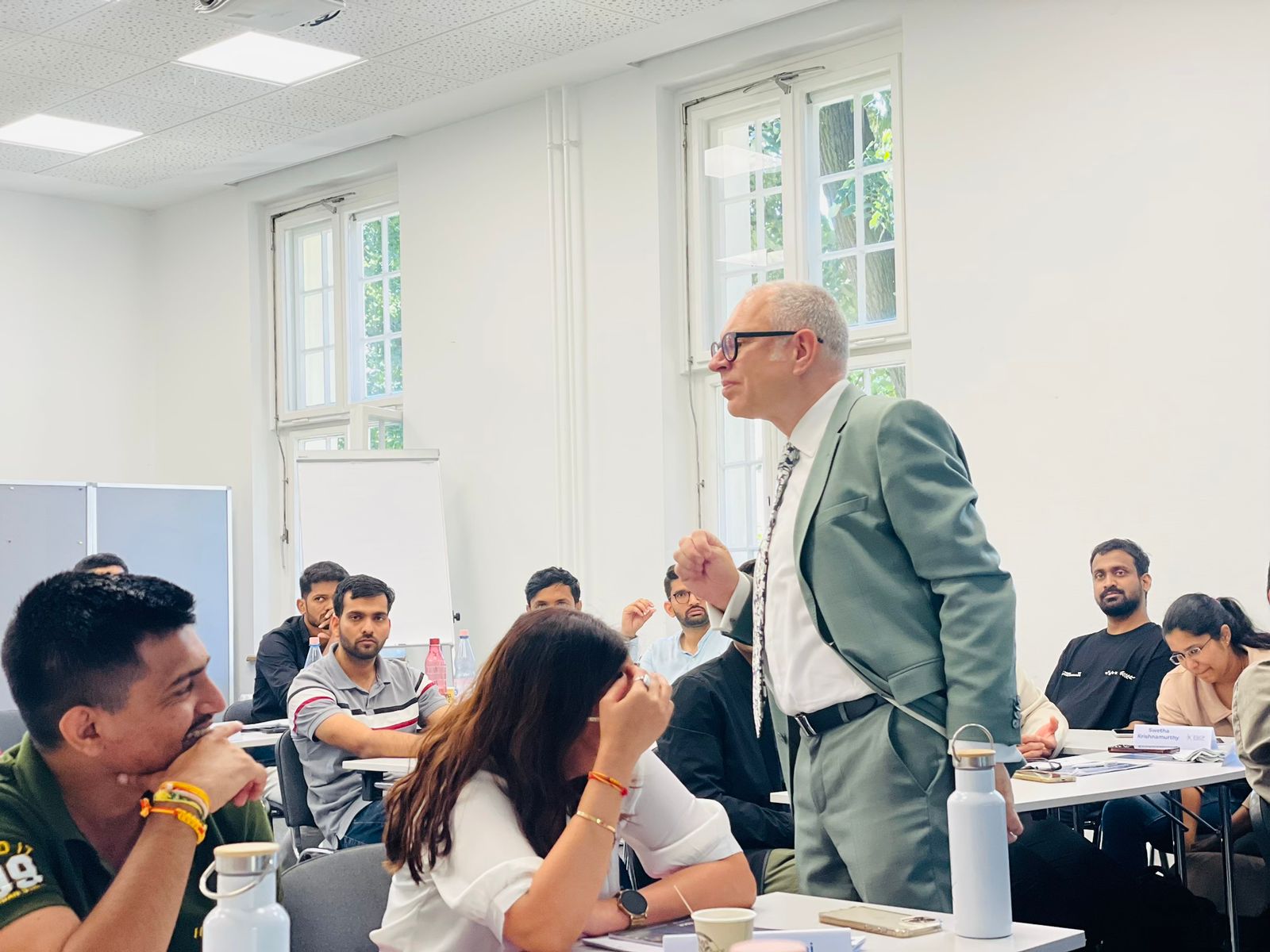 Professor Stefan Schmid, ESCP Business School, delivers the ‘Germany’s Family Businesses, SMEs and Hidden Champions: Learning from the Mittelstand’ lecture.
Professor Stefan Schmid, ESCP Business School, delivers the ‘Germany’s Family Businesses, SMEs and Hidden Champions: Learning from the Mittelstand’ lecture.
Day 3
The third day deepened this exploration, peering into the Berlin Startup Ecosystem led by researcher Chloe Ipert. Berlin’s reputation as one of Europe’s most inclusive and diverse entrepreneurial hubs came alive through discussions on women founders, international teams, a massive increase in early-stage, late-stage, and billion-dollar companies, a growing importance to angel investors and corporate venture capital, and lastly, leadership in sub-sectors like deep tech, fintech and cleantech.
The visit to MotionLab.Berlin, a dynamic “hardware hub” that offers entrepreneurs a space to build and test their products, made tangible the infrastructure and spirit that sustain Berlin’s entrepreneurial energy. For students, it underlined the ecosystem’s openness and its role in transforming ideas into market-ready innovations.
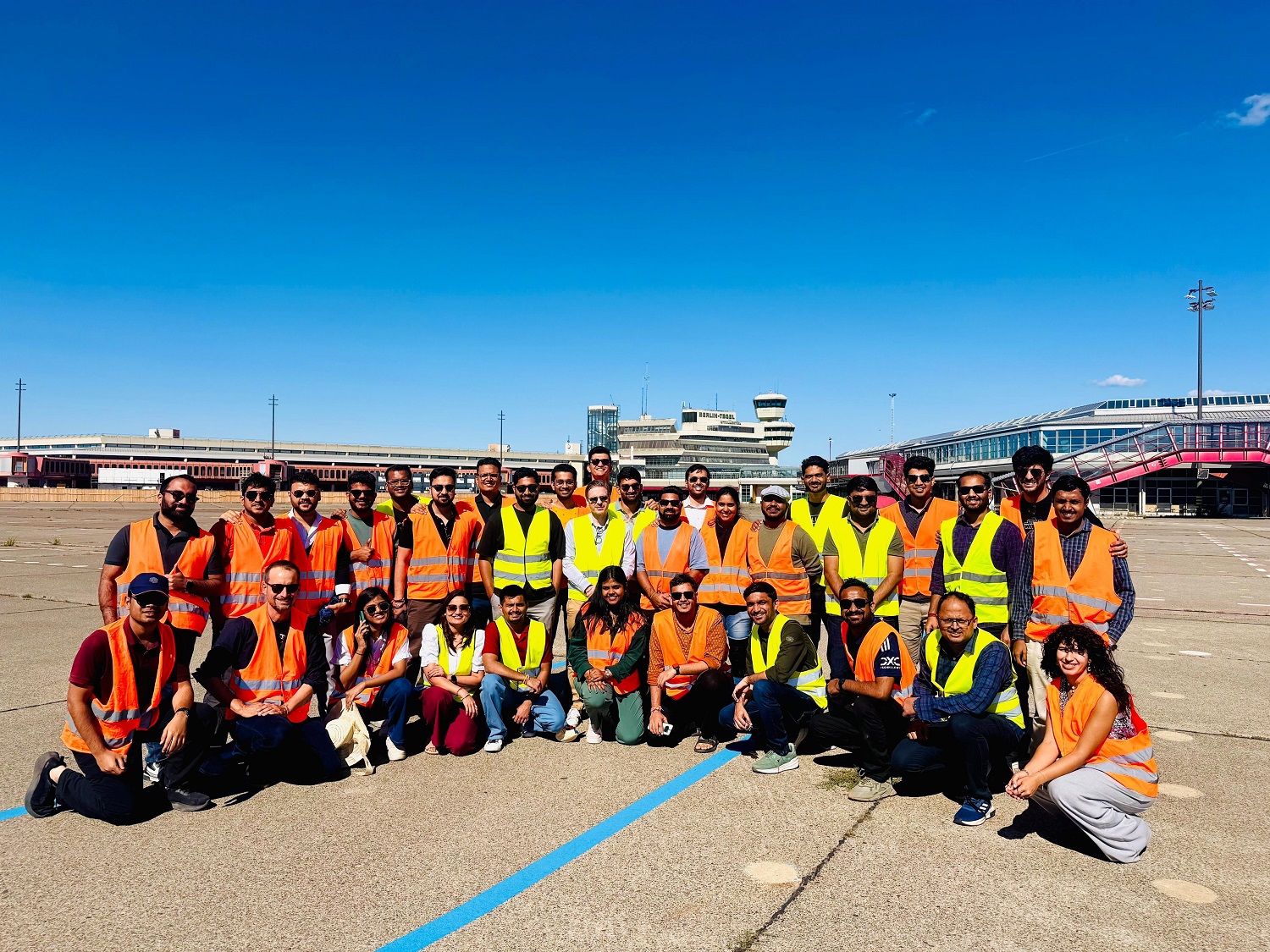 EPGP students visit MotionLab.Berlin on Day 3 of the immersion as part of a site visit.
EPGP students visit MotionLab.Berlin on Day 3 of the immersion as part of a site visit.
Day 4
On day four, Dr. Marcus Schmalbach, professor of Blockchain and Artificial Intelligence at ESCP, guided participants into the future-facing domains of AI and IoT. During the sessions, students reckoned with the idea that while AI is not a new concept, its recent surge is due to the confluence of massive computing power, data availability, and algorithmic breakthroughs. A key takeaway was understanding the difference between narrow AI, general AI, and superintelligence, and how modern foundation models are making narrow AI increasingly generalized. The session then probed into the shift in AI’s evolution from rule-based to statistical and deep learning models. Students also delved into the ethical and strategic dimensions of emerging technologies, stressing that questions of bias, privacy, and geopolitics are inseparable from business strategy.
The subsequent visit to the Urban Tech Republic, located at the redeveloped Tegel Airport as a living urban laboratory, brought themes of sustainable urban development into the real world. Encounters with renewable, clean energy projects with the green hydrogen innovations at STOFF2 offered a vivid view of how technology, policy and entrepreneurship converge to address pressing global challenges.
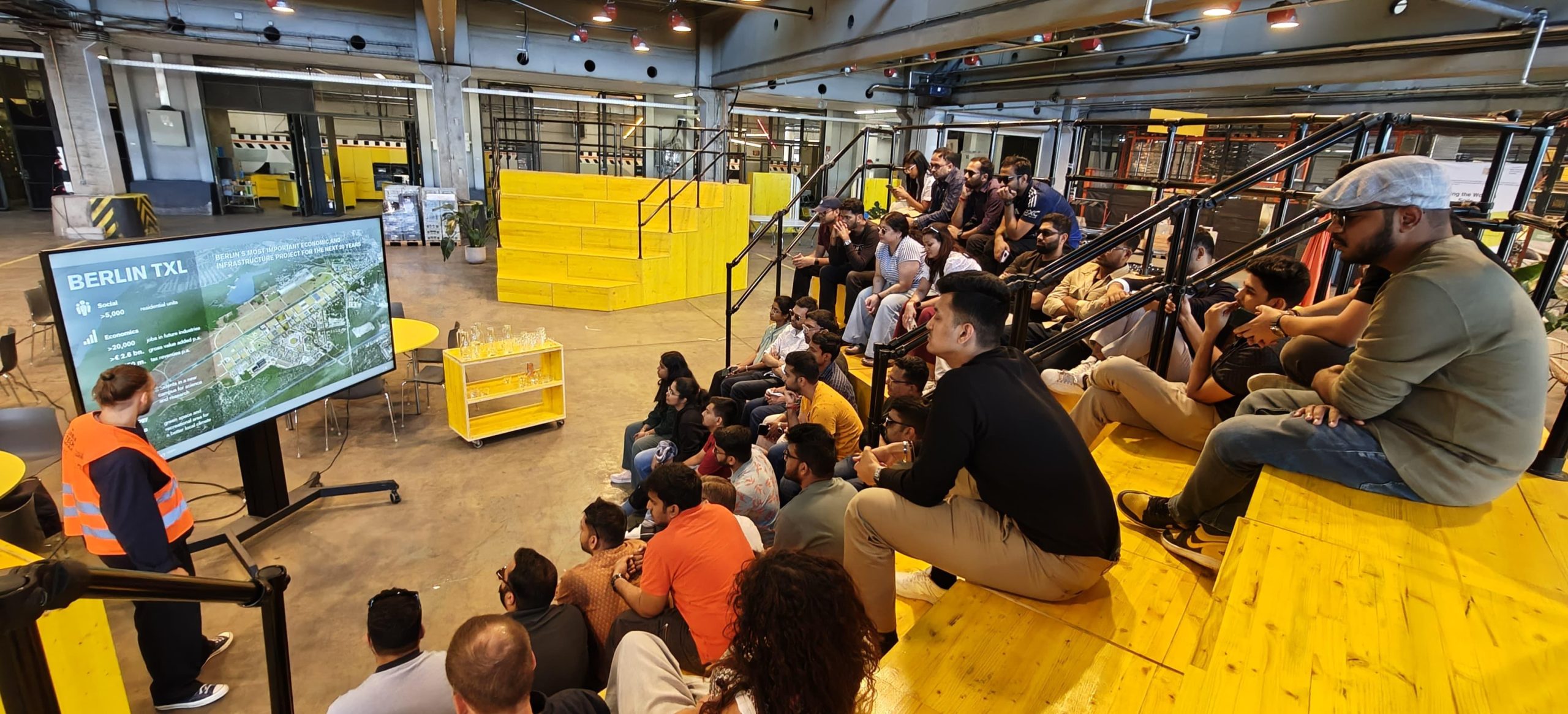 An industry visit to the Urban Tech Republic, located at the redeveloped Tegel Airport, as a living urban laboratory.
An industry visit to the Urban Tech Republic, located at the redeveloped Tegel Airport, as a living urban laboratory.
Day 5
The week culminated with Dr. Alexander Eck’s session on Smart Mobility, which drew on his deep industry experience at the VW Group to illuminate ways in which AI and software are reshaping the automotive industry.
The discussion on levels of self-driving, electrification, and the shift from products to platforms revealed how profoundly business models in mobility are evolving. A factory visit to BMW Motorrad Zentrum exposed students to both BMW’s heritage, with a fascinating look into the company’s oldest assembly plan and the future-forward strategies of one of Germany’s most iconic manufacturers. A highlight was witnessing BMW’s demand-driven, highly customized production process, in a striking example of precision, efficiency, and adaptability in action.
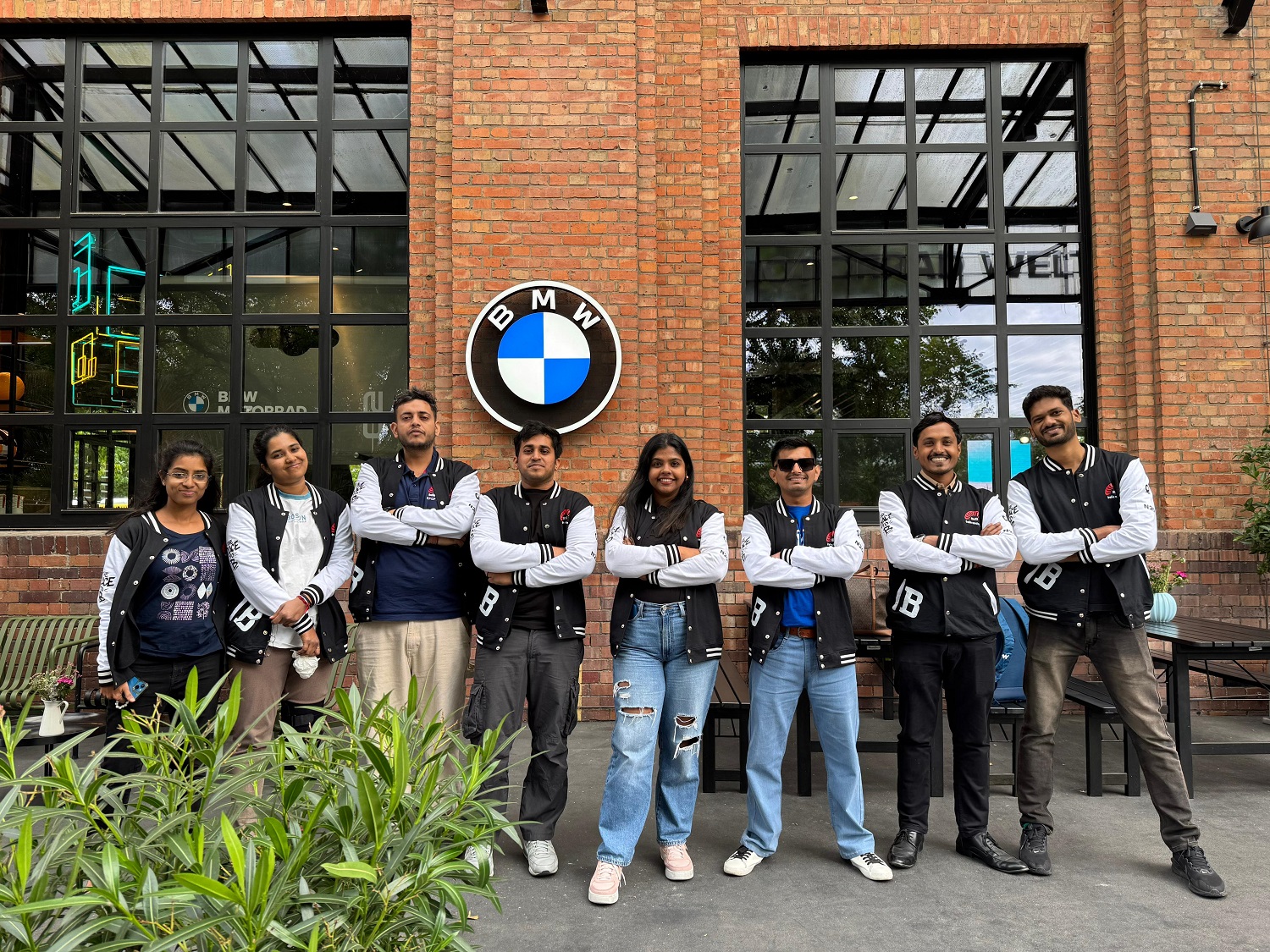 A factory visit to BMW Motorrad Zentrum.
A factory visit to BMW Motorrad Zentrum.
Across these five days, the immersion wove together Germany’s macroeconomic environment, its distinct enterprise models, the vibrancy of its startup ecosystem, and its leadership in frontier technologies. For the EPGP participants, the experience was a holistic encounter with the forces shaping one of the most dynamic economies of the world.
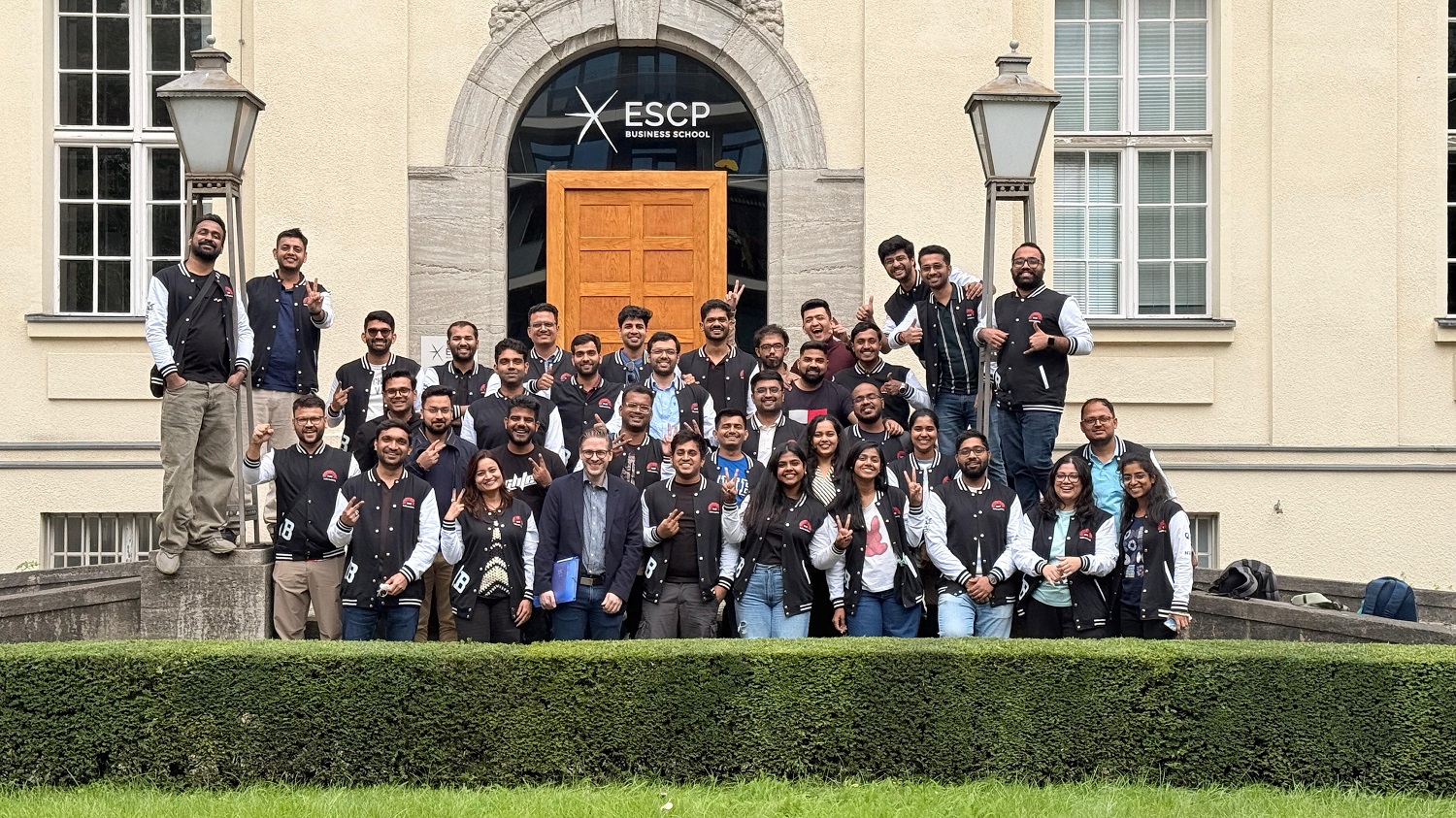 Students of the EPGP 2025-26 batch pictured at ESCP Business School, Berlin Campus, during the international immersion.
Students of the EPGP 2025-26 batch pictured at ESCP Business School, Berlin Campus, during the international immersion.
